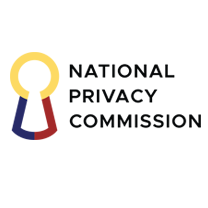Justice Sec. Menardo I. Guevarra has signed the 2019 Rules on Mediation in the National Prosecution Service.
Coverage
Under the Rules, the civil aspect of all criminal complaints for Simple Theft, Qualified Theft, Estafa, and Criminal Negligence resulting in damage to property (all under the Revised Penal Code) and for violations of the Bouncing Checks Law (Batas Pambansa 22) involving an amount not exceeding P200,000 shall be referred to mandatory mediation.
If the amount involved in a covered complaint exceeds P200,000, the provisions on voluntary mediation shall apply.
Parties who opt to submit a complaint to voluntary mediation may do so not later than the submission by respondent/s of the counter-affidavit and shall sign an Agreement to Mediate.
Suspension of Preliminary Investigation
The referral of the complaint to a mandatory mediation or the signing by the parties of the Agreement to Mediate suspends the preliminary investigation of the complaint.
Preliminary investigation resumes upon receipt by the investigating prosecutor of the complaint after a failed mediation.
Mediation Outcome
A successfully mediated complaint will result in the provisional dismissal of the complaint. This shall become permanent if no motion to revive the complaint has been filed by any of the parties after the lapse of 15 calendar days from the date of non-compliance or violation of any of the terms and conditions of the Settlement Agreement executed by the parties.
“In case of failed mandatory mediation, the Mediator shall officially return the complaint not later than the following working day to the Records/Administrator Officer who shall forthwith transmit the same to the Head of Office.”
On the other hand, “in case of failed voluntary mediation, the Head of Office shall assign the complaint to a new investigating prosecutor who shall forthwith proceed with its preliminary investigation.”
Persons Authorized to Mediate
All state prosecutors (except the Prosecutor General and Regional, Provincial and City Prosecutors and those designated as such in an acting capacity or as officers-in-charge) and private mediation practitioners may conduct mediation after proper training on mediation and certification by the Office of Alternative Dispute Resolution (OADR).
Confidentiality of Proceedings
Under the Rules, the mediation proceedings and all its incidents shall be kept strictly confidential.
Information obtained through mediation shall not be subject to discovery and shall be inadmissible in any proceeding, whether judicial or quasi-judicial.
The parties to the dispute and the mediator may not be compelled to disclose confidential information obtained during the mediation.
But a party may waive the privilege arising from the confidentiality of information in writing and after such party has been fully appraised of the consequences of his waiver.
Creation of the TWG
Secretary Guevarra earlier created a Technical Working Group (TWG) “to reformulate policies and revise” the old Rules on NPS Mediation.
The TWG was composed of Undersecretary Markk L. Perete and Atty. Maria Theresa Sindico-Guillame as Executive Heads; lawyers from the National Prosecution Service (NPS) led by Senior Deputy State Prosecutor Richard Anthony D. Fadullon and from the OADR led by its OIC-Executive Director State Counsel Bernadette C. Ongoco; and the TWG Secretariat.
Ongoco said the purpose of mediation is to help parties arrive at an acceptable compromise so that lesser cases are brought to the NPS.
Training of Mediators
To ensure the effective implementation of the Rules, a series of training of mediators by the OADR are under way.
Training of mediators is currently being held for the NPS - Cebu City, where the pilot of the mediation project will run from August 2019 to January 2020.
The pilot project for the NPS Mediation is supported by GoJust.








